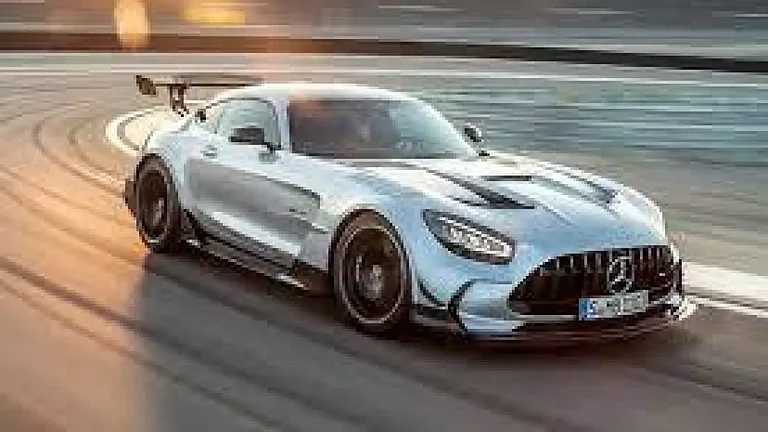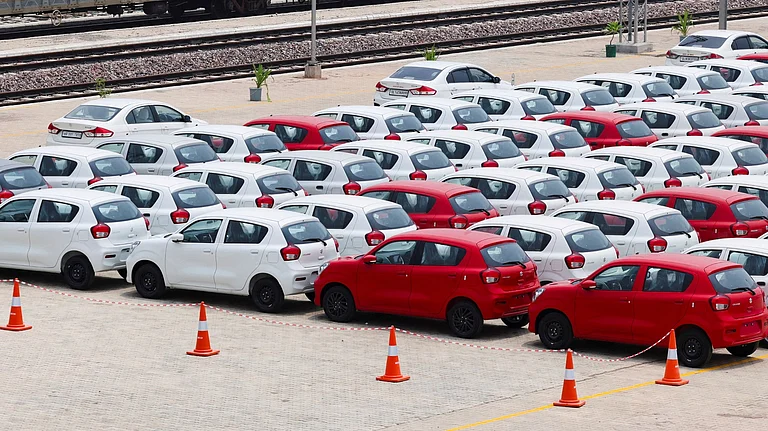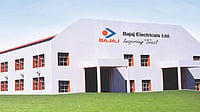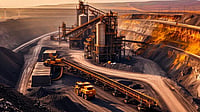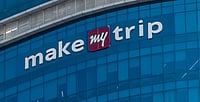German luxury carmaker Mercedes-Benz is unfazed by the likelihood of Tesla entering India with imported electric cars at much lower duty and believes that the country's new EV policy has safeguards for existing players, a senior company official said on Thursday.
While the entry of the likes of Tesla and VinFast will help expand the market and accelerate EV adoption in India, Mercedes-Benz is confident to maintain leadership in the luxury EV space as the new entrants would play in the lower segment.
"I think new competitions and new players are always welcome. It helps to expand the market, spread more awareness, which is also the need of the hour to get more EV penetration," Mercedes-Benz India Managing Director & CEO Santosh Iyer told PTI.
He was responding to a query on the implications of India's new EV policy and if it puts manufacturers which have already invested in the country at a disadvantage.
"Any duty-free or any reduced-duty tariffs are always welcome because we have always been advocating free trade in India and globally. So for us, any such things are welcome," he said.
Iyer further said, "We have to go deeper into the policy and check the implications but there are caps and ceilings and there are safeguards put in by the government. So at this stage, it is not a major threat that we see for our business."
Under the new EV policy, companies that would set up manufacturing facilities for EV passenger cars will be allowed to import a limited number of cars at lower customs/import duty of 15 per cent on vehicles costing USD 35,000 and above for a period of five years from the date of issuance of the approval letter by the government.
At present, cars imported as completely built units (CBUs) attract customs duty ranging from 70 per cent to 100 per cent, depending on the type of fuel, engine size and cost, insurance and freight (CIF) value below or above USD 40,000.
The policy seeks to promote India as a manufacturing destination for EVs and attract investment from reputed global EV manufacturers.
On Wednesday, Tesla CEO, Elon Musk confirmed his visit to India and his planned meeting with Prime Minister Narendra Modi. He is expected to announce the company's investment plans in the country during his visit in the week of April 22.
Iyer reiterated that Mercedes-Benz is committed to the development of the EV market in India.
"For Mercedes-Benz, we completed 30 years in India and we have been strategically investing here in this market. We have invested close to Rs 3,000 crore in our plant," he said.
Further to that, Iyer said, "We also have a huge R&D centre in Bangalore with more than 10,000 people. So from investment and from our presence in India, we are fully committed to the market.
On the EV side, "We have also localised an EV and we were the first to localise an EV in the luxury segment. Penetration (of EV) is growing year on year and definitely the market holds promise.
When asked about competition from Tesla, citing media reports he said, they will "play more in the mass segment" of EVs whereas Mercedes-Benz will be in the top luxury segment.
While the entry electric car EQB of Mercedes-Benz is priced at around Rs 80 lakh, Tesla's imported vehicles are expected to play in a much lower segment.
As such, Iyer said, "These brands compete worldwide. It's not new for us to compete with many of these brands. We are clear that when it comes to the Indian context, some of these brands will compete more in the mass segment...We are not too dependent on the entry-luxury segment. We have a different customer base who would like to have luxury EVs and which are very different from some of the offerings that are expected from the other players.".
Moreover, he said the new players may not have many product offerings as well.
"There is enough room in India for everyone and we have to wait and see how this develops over a period of time. We will have our own space to play and we will continue to keep focused on the luxury segment assets in the time to come as well," Iyer said.









